-
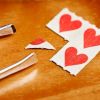 +12 +1
+12 +1Do Microdoses of LSD Change Your Mind?
You’ve probably heard about microdosing, the “productivity hack” popular among Silicon Valley engineers and business leaders. Microdosers take regular small doses of LSD or magic mushrooms. At these doses, they don’t experience mind-bending, hallucinatory trips, but they say they get a jolt in creativity and focus that can elevate work performance, help relationships, and generally improve a stressful and demanding daily life. If its proponents are to be believed, microdosing offers the cure for an era dominated by digital distractions and existential anxiety—a cup of coffee with a little Tony Robbins stirred in.
-
 +12 +1
+12 +1A single dose of psilocybin enhances creative thinking and empathy up to seven days after use, study finds
New research provides more evidence that psilocybin, the active ingredient in magic mushrooms, can improve creative thinking, empathy, and subjective well-being. The findings appear in the Journal of Psychoactive Drugs. “In the last decade, there has been a renewed scientific interest in the utility of psychedelics. Increasing evidence suggests that psychedelics like psilocybin may have potential therapeutic value for disorders like anxiety, depression, and PTSD,” said Natasha Mason (@NL_Mason), a PhD candidate at Maastricht University and the corresponding author of the study.
-
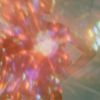 +24 +1
+24 +1LSD Changes Something About The Way You Perceive Time
We measure time in set amounts— seconds, minutes, and hours. But the way time feels is more slippery.
-
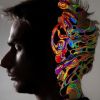 +22 +1
+22 +1Psilocybin combined with psychological support might correct pessimism biases in depression
The psychedelic drug psilocybin could help alleviate depression by causing people to have a less pessimistic outlook on life, according to preliminary research published in Frontiers in Psychology. Previous research has found that depression is associated with unrealistic negative predictions of future life events. Scientists from the Psychedelic Research Group at Imperial College London were interested in whether psilocybin — the main psychoactive compound in magic mushrooms — could reduce these pessimism biases.
-
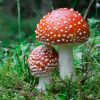 +2 +1
+2 +1Beyond Psilocybin: Mushrooms Have Lots of Cool Compounds Scientists Should Study - The Crux
Mushrooms contain many unexplored compounds that could help humanity.
-
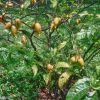 +1 +1
+1 +1The Strange Realm of Salvia Research | Psychedelic Times
Salvia is best known as somewhat of a meme—the goofy, over-the-counter psychedelic prevalent in head shops, notorious for its uncomfortable, short-lived hallucinogenic trip. Pretty much harmless, but a way that many young psychonauts get their toes wet. But the herb Salvia divinorum carries great cultural significance in some parts of the world, and research into …
-
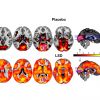 +25 +1
+25 +1First ever trials on the effects of microdosing LSD set to begin
Silicon Valley geeks say it sharpens their thinking and enhances creativity. Other people say it lifts the fog of depression. A novel experiment launching 3 September 2018 will investigate whether microdosing with LSD really does have benefits – or whether it’s all in the mind. Microdosing using psychedelic drugs – either LSD or magic mushrooms – is said to have become very popular, especially with people working in the Californian digital tech world...
-
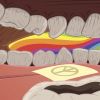 +20 +1
+20 +1Could psychedelics be prescribed for depression?
Growing evidence suggests that hallucinogenic drugs can help quell depression. Following the government’s review of medicinal cannabis last month, Jack Dutton asks whether we are at a turning point in drug policy
-
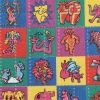 +12 +1
+12 +1Study: Men Who Have Used Psychedelics Are Half As Likely to Be Violent to Their Partners
New evidence suggests that men who have used psychedelic drugs are around half as likely to be violent against their intimate partners as men who have never used such substances. The results came from a study undertaken at the University of British Columbia, and published by the Journal of Psychopharmacology on May 29. Researchers aimed to examine the association between the perpetration of "intimate partner violence" and lifetime psychedelic use.
-
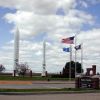 +8 +1
+8 +1Security troops on US nuclear missile base took LSD
One airman said he felt paranoia. Another marveled at the vibrant colors. A third admitted, “I absolutely just loved altering my mind.” Meet service members entrusted with guarding nuclear missiles that are among the most powerful in America’s arsenal. Air Force records obtained by The Associated Press show they bought, distributed and used the hallucinogen LSD and other mind-altering illegal drugs as part of a ring that operated undetected for months on a highly secure military base in Wyoming. After investigators closed in, one airman deserted to Mexico.
-
 +27 +1
+27 +1Breakthrough study reveals how LSD dissolves a person's sense of self
A fascinating study has uncovered key insights into the mechanisms behind how our brain generates the sense of our self. The researchers administered LSD to several participants in order to home in on where in the brain our sense of self is activated.
-
 +19 +2
+19 +2LSD blurs line between ourselves and others, study finds
Apart from the wide-eyed bike ride home from the lab, his neighbour turning into a witch, the threatening behaviour of his furniture and the futile battle to save his ego from collapse, Dr Albert Hofmann appeared to enjoy his first trip on LSD. Now, 75 years after the Swiss chemist witnessed the full effects of his psychedelic invention, scientists have discovered fresh details of how the drug affects the brain. Scans of healthy volunteers show that less than half the dose that left Hofmann cowering on his sofa makes a person’s sense of self disintegrate.
-
 +6 +1
+6 +1Research Suggests Psychedelic Drugs Can Improve Mental Health, But There's a Catch
A growing body of research suggests a psychedelic drugs anxiety link, but we're still learning how they work and dealing with laws against their use
-
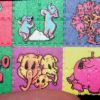 +32 +1
+32 +1LSD is 'harmonizing' for the brain — and can change your personality for years, studies find
Your brain on LSD is kind of like jazz improvisation. That’s according to Selen Atasoy, a research fellow at the Center for Brain and Cognition at the Pompeu Fabra University in Spain. She was among the authors of a study published in the journal Scientific Reports that found the psychedelic drug can reorganize your brain in a “harmonizing” way.
-
 +1 +1
+1 +1Inside the Mind of the Countess of Psychedelic Science
If LSD is having its renaissance, 75-year-old English countess Amanda Feilding is its Michelangelo.
-
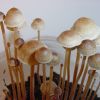 +13 +1
+13 +1Two Magic Mushroom Studies Suggest Psychedelics Increase Spirituality, Decrease Criminal Behavior - Psychedelic Times
New research in the Journal of Psychopharmacology suggests that psychedelics like LSD and magic mushrooms may make you less likely to steal or be violent.
-
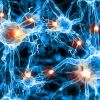 +24 +1
+24 +1Microdosing LSD is safer than taking antidepressants, says neurobiologist.
Psychedelic drugs might not deserve their bad reputation. David Presti, a professor of neurobiology and expert on the effects of drugs on the brain at the University of California, really thinks there’s something going on with microdosing. When people do get around to researching it, it’s going to be relatively easy to demonstrate positive effects that are better than conventional antidepressants.
-
 +16 +1
+16 +1Acid redux: My long, strange, cancer-fighting trip back to tripping
Our dual cancer diagnoses plunged me and my wife into depression. Could LSD, the drug of my youth, help now?
-
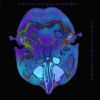 +26 +1
+26 +1First-Ever LSD Microdosing Study Will Pit the Human Brain Against AI
Amanda Feilding used to take lysergic acid diethylamide every day to boost creativity and productivity at work before LSD, known as acid, was made illegal in 1968. During her downtime, Feilding, who now runs the Beckley Foundation for psychedelic research, would get together with her friends to play the ancient Chinese game of Go, and came to notice something curious about her winning streaks.
-
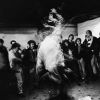 +14 +1
+14 +1The Lingering Legacy of Psychedelia
Jesse Jarnow’s new book complicates and extends the history of LSD and sixties counterculture. By Hua Hsu. (May 17, 2016)
Submit a link
Start a discussion




















